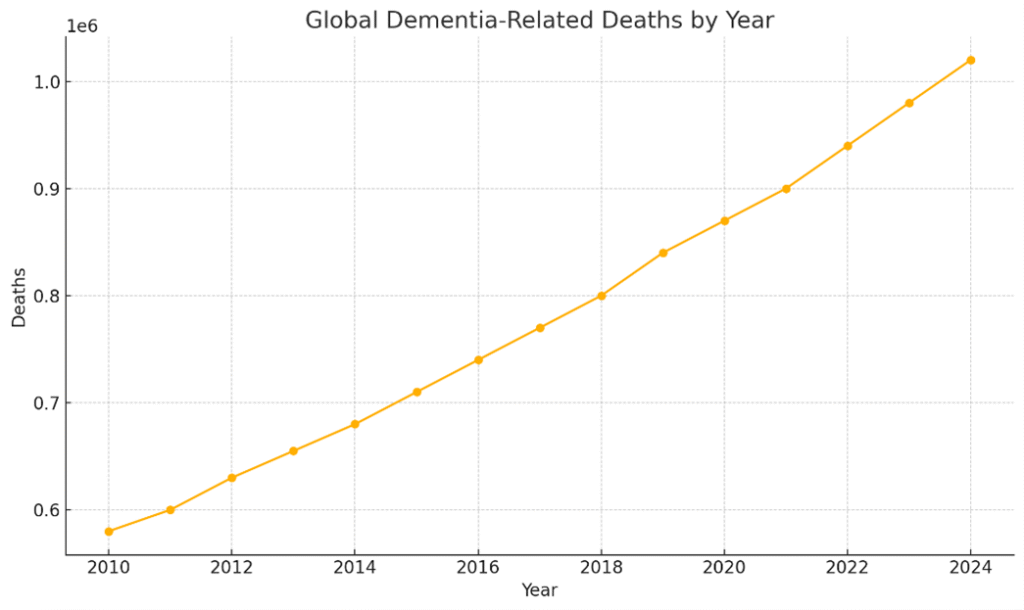Watching your parent fall at night can be a frightening experience. Even a minor stumble can lead to serious injuries, and it can shake both your loved one and your family emotionally. Nighttime falls are particularly risky because older adults often wake up groggy, disoriented, or unsteady, and the path from bed to bathroom or hallway may be dark and cluttered.
The good news? Most nighttime falls are preventable. By understanding how sleep changes with age, why falls happen at night, and implementing practical home modifications, you can create a safer home environment. For families in Brea, Fullerton, Yorba Linda, Anaheim, Orange, and Villa Park, professional in-home caregivers are also a trusted solution to reduce risks and provide peace of mind.
How Sleep Changes as We Age
Sleep naturally changes as we grow older, and these changes contribute to nighttime fall risks.
- Shifts in sleep schedule: Many older adults get sleepy earlier in the evening and wake up earlier in the morning.
- Lighter, fragmented sleep: Seniors spend less time in deep, restorative sleep, often waking multiple times during the night.
- Frequent nighttime trips: Conditions like nocturia (waking to urinate) increase the likelihood of walking while drowsy.
- Medication effects: Some prescriptions, including sleep aids or blood pressure medications, can cause dizziness or unsteadiness.
- Health conditions: Arthritis, balance disorders, vision changes, or cognitive decline all contribute to nighttime fall risk.
Even though older adults may sleep less efficiently, most still need 7–8 hours of quality sleep. Interruptions during this time can lead to grogginess and impaired balance, making falls more likely.
Why These Sleep Changes Increase Fall Risk
- Grogginess and disorientation: When waking from light or fragmented sleep, seniors may feel confused or unsteady.
- Low visibility: Walking in dark hallways or bathrooms increases the chance of tripping.
- Medication side effects: Dizziness, reduced coordination, or slowed reaction times can increase fall risk.
- Mobility limitations: Weak muscles or balance issues mean even short nighttime walks can be dangerous.
How Serious Are Nighttime Falls?
Falls are the leading cause of injury in older adults. Even a seemingly minor fall can result in fractures, head injuries, or long-term loss of independence. Simple home modifications, like grab bars or proper lighting, can reduce falls by up to 30%.
Nighttime falls often happen along predictable paths — from bed to bathroom, down hallways, or on stairs — making them largely preventable with the right safety measures.
Practical Ways to Make the Home Safer at Night
Improve Lighting
Lighting is one of the easiest and most effective ways to prevent nighttime falls.
- Motion-activated night lights: Lights that turn on automatically reduce tripping hazards.
- Floor-level lighting: LED strips along hallways or stairs guide safe movement without disturbing sleep.
- Bathroom lights: Motion-sensor lights make nighttime bathroom trips safer.
Clear the Path
Clutter can be a hidden hazard.
- Remove rugs, cords, and furniture that may block the path from bed to bathroom.
- Arrange furniture so walking paths are straight and stable.
- Keep essentials like a phone, glasses, or water within reach to avoid unnecessary trips.
Add Supportive Fixtures
- Grab bars: Near the bed, bathroom, and along hallways.
- Bed rails: Help your parent safely get in and out of bed.
- Stable furniture: Ensure bedside tables or chairs don’t wobble or tip.
Make Bathrooms Safer
Bathrooms are high-risk areas for falls.
- Non-slip mats: Place inside showers, in front of toilets, and on bathroom floors.
- Handrails: Install near toilets and showers.
- Bedside commode: For seniors with mobility challenges, a commode reduces the distance they need to walk at night.
Check out the Medications
Some medications can affect balance, coordination, or alertness:
- Blood pressure medications: May cause dizziness if taken at night.
- Sedatives: Can make walking unsteady.
- Discuss timing or alternatives with your doctor to minimize nighttime risks.
Use Assistive Devices
- Walker or cane: Keep it within reach at night.
- Glow-in-the-dark tips: Make walking aids visible in low light.
- Fall detection devices: Alerts caregivers if a fall occurs, allowing faster assistance.
Support Sleep Health
Improving sleep can reduce grogginess and fall risk:
- Consistent sleep schedule: Go to bed and wake up at the same time daily.
- Daytime light exposure: Helps regulate circadian rhythm and improves nighttime sleep.
- Exercise: Improves strength, balance, and sleep quality.
- Treat sleep disorders: Sleep apnea, insomnia, or restless leg syndrome can disrupt sleep and increase fall risk.
The Role of Overnight Caregivers
For families in Brea, Fullerton, Yorba Linda, Anaheim, Orange, and Villa Park, hiring an overnight caregiver can be a game-changer. Here’s how they help:
- Immediate fall assistance: If a senior stumbles or trips, caregivers provide immediate support and prevent serious injury.
- Nighttime mobility support: Caregivers help with trips to the bathroom, minimizing falls on stairs or slippery floors.
- Medication reminders: Ensuring medications are taken on time reduces dizziness and sleep disturbances.
- Monitoring health: They can notice early signs of sleep issues, confusion, or balance problems and alert family members or healthcare providers.
- Peace of mind: Families can rest knowing a trained professional is present, allowing seniors to maintain independence safely.
Overnight caregivers also offer comfort and companionship, helping reduce nighttime anxiety or confusion that sometimes triggers wandering or falls.
When to Seek Additional Help
Even with safety measures, some situations require extra intervention:
- Frequent falls: Consult a doctor or physical therapist.
- High fall anxiety: May need balance training or overnight caregiving.
- Severe mobility or cognitive issues: Professional in-home care can ensure safety and continuous monitoring.
Real-Life Example
Mr. and Mrs. Decoy, residents of Brea, CA, noticed Mr. Decoy getting up multiple times at night to use the bathroom. One night, he tripped over a loose rug and fell.
Their daughter, Maria, took several steps:
- Installed motion-activated night lights along the hallway and bathroom.
- Removed loose rugs and added non-slip mats in the bathroom.
- Hired an overnight caregiver who helped Mr. Decoy safely move at night, assisted with bathroom trips, and monitored for any health issues.
The results were immediate: fewer falls, improved sleep quality, and peace of mind for the family.
Final Thoughts
Nighttime falls are a serious risk, but they can be prevented. By understanding how aging affects sleep and mobility, implementing practical home safety measures, and considering professional Fall Prevention Care, families in Brea, Fullerton, Yorba Linda, Anaheim, Orange, and Villa Park can protect their loved ones.
Safety is about more than preventing falls — it’s about preserving independence, confidence, and peace of mind for both your loved one and your family.













